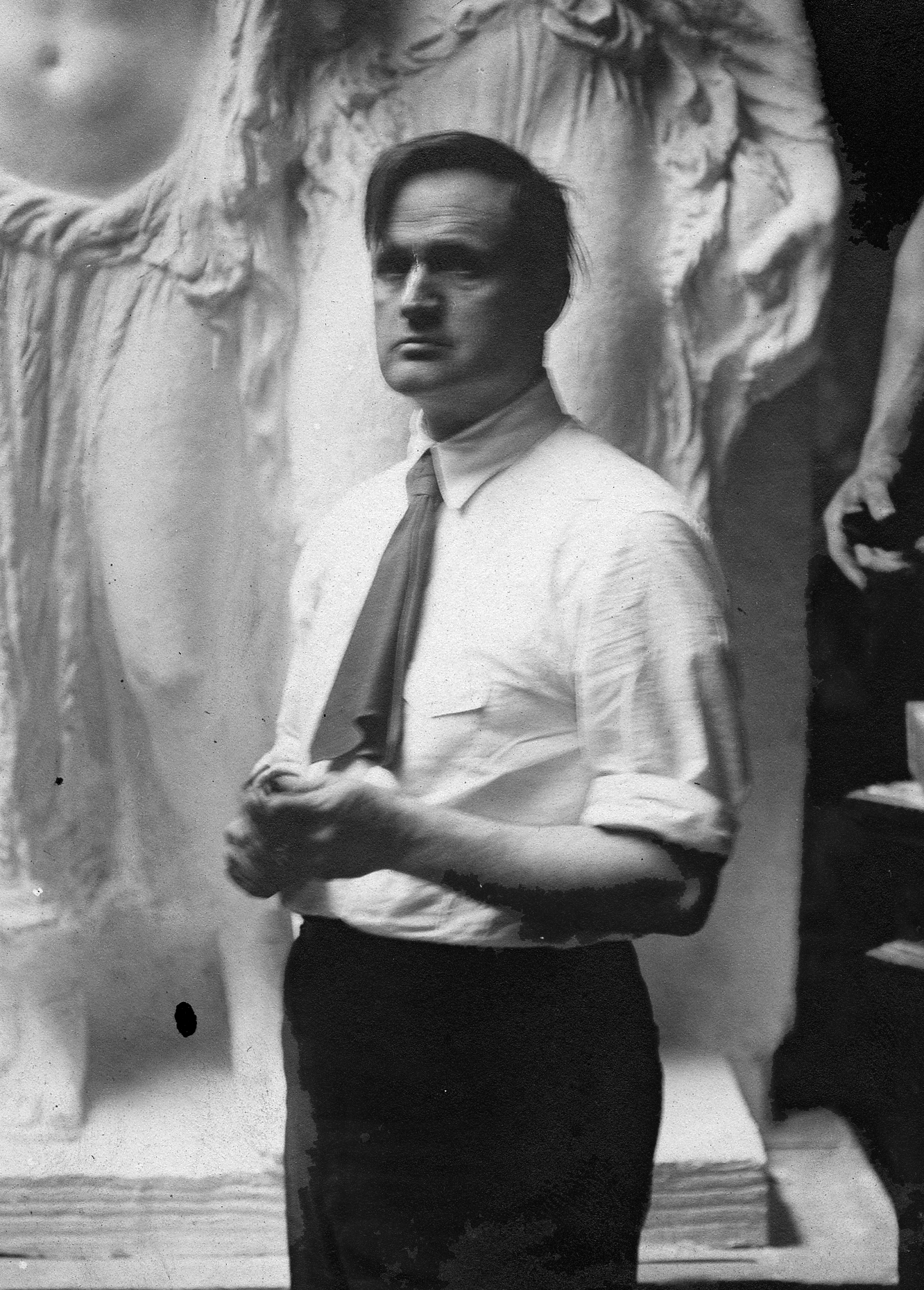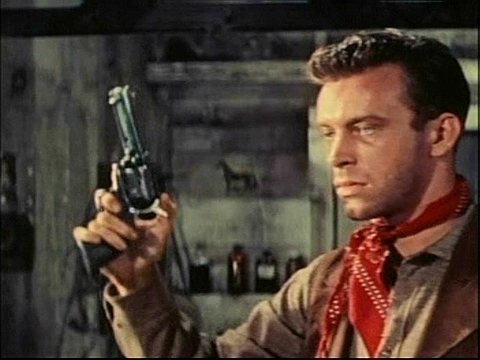For this writer, any examination of William Witney's 1982 swan song QUELL & CO. starts not with a particular actor, writer, or filmmaker, but with the work of pioneering American sculptor James Earle Fraser. A well-known numismatist, Fraser produced his best-known work, the Indian Head or "Buffalo" nickel, in 1913. But it's 1915's haunting "End Of The Trail" that, symbolically at least, seems to encapsulate QUELL & CO.'s world-weary cynicism and tired romanticism.
The son of a famed railroad engineer who assisted the major rail companies of the early 20th Century in expanding their reach across the American West, Fraser was exposed to frontier life at an early age, becoming sympathetic to the plight of Native Americans as they were displaced further west or, worse, confined to reservations. Such memories were captured in many of his most famous works, including the haunting "End of the Trail."
A dark depiction of "ragged glory," "The End Of The Trail" has inspired chroniclers of the American West for decades, tempering the otherwise idealistic views of iconic western author Zane Grey and even providing the cover for the 1971 album SURF'S UP by the Beach Boys (whom Witney had gotten to know while directing his 1965 musical comedy THE GIRLS ON THE BEACH, in which they appeared).
And just what does a surf-rock album have to do with America's most prolific director of serials and westerns? Well, by the Seventies, the halcyon glory days of the Beach Boys were but ancient memories of a forgotten age. Bandleader Brian Wilson, the sonic architect of the group's distinctive sound and writer / producer of their greatest hits, was spiraling ever deeper into a drug fueled Belladonic haze, forcing other members of the band (most notably younger brother Carl Wilson) to take over the creative reins. Songs about "honeys," hot rods and hot nights were being replaced by music with a more world conscious - and world weary - edge. Many pundits have suggested that the image of a disillusioned warrior whose people have been marginalized to the edges of society must have struck a sympathetic cord with the band, and this same concept of an epic struggle against the expansionist white man is writ large over the dusty Texas plains of QUELL & CO. too.
As Witney's final picture opens, trouble is simmering in post-civil war Texas as tough-as-nails ex-army officer Quell (Madison Mason) and his of group of honest, hardworking but poor homesteaders stop off in the dusty one-horse town of Eagle Gap on their way to claiming their new land and life. Not long after they arrive it becomes apparent that tyrannical land baron and all-around cheap hood Kirk (western and sci-fi icon Skip Homeier) rules the territory with an iron fist, and the peaceful settlers soon find themselves engaged in a struggle not only for their freedom but for the lives of those being abused by Kirk's henchmen. The malevolent mogul's torture of the poor frontiersmen raises the ire of Quell and his ragtag, justice-dealing posse, who despise Kirk's manipulative efforts to bankroll his way to fame and greater fortune at the expense of the poor. The stage is thus set for an apocalyptic showdown on the dusty Texas plains as Quell and his men seek to bring Kirk down in a rain of bullets.
As Quell, Madison Mason carries the show with the same quiet intensity he's exhibited in everything from 70s staples like POLICE WOMAN to contemporary efforts like Michael Bay's TRANSFORMERS. But he's overshadowed by the gifted Homeier, who imbues Kirk with charisma, intelligence and unexpected flashes of sympathy. Homeier had first worked with Witney a quarter century earlier, in 1957's STRANGER AT MY DOOR, and together these two old school pros collaborate to create one of the more carefully-shaded villains in the Witney canon.
But acting choices aside, the most surprisingly thing about QUELL & CO. is just how willfully obscure the film has become in the years since its release. The director's most high-profile apologist, Quentin Tarantino, has routinely (and mistakenly) touted 1975's surreal blaxploitation opus DARKTOWN STRUTTERS as the filmmaker's swan song, a perception Witney himself didn't help dispel when he failed to even acknowledge the U.S. / German co-production's existence in his otherwise exhaustive autobiography. It's an omission that becomes even more puzzling in the light of the self-referential touches the director litters throughout the film, from the "western trio" format that echoes the structure of his excellent "solo" western directorial debut THE TRIGGER TRIO, to his own cameo at the end of the film as the beleaguered sheriff who quietly sends Quell on his way while slouching in his saddle with a wry grace that again echoes the poignant romanticism of "The End Of The Trail."
Released under its original title on Europe, QUELL & CO. remained unavailable on disc in the U.S. until 2006, when Echo Bridge Home Entertainment quietly issued it on DVD under the more "exciting" title SHOWDOWN AT EAGLE GAP. An acceptable but unspectacular transfer, the disc is marred only a clumsy title-card insertion that nearly ruins the opening credits.
Nevertheless, the DVD offers viewers the opportunity to catch up with one of the last of the old-school "traditional" westerns. And for fans who admire William Witney and know his work, that's enough.










